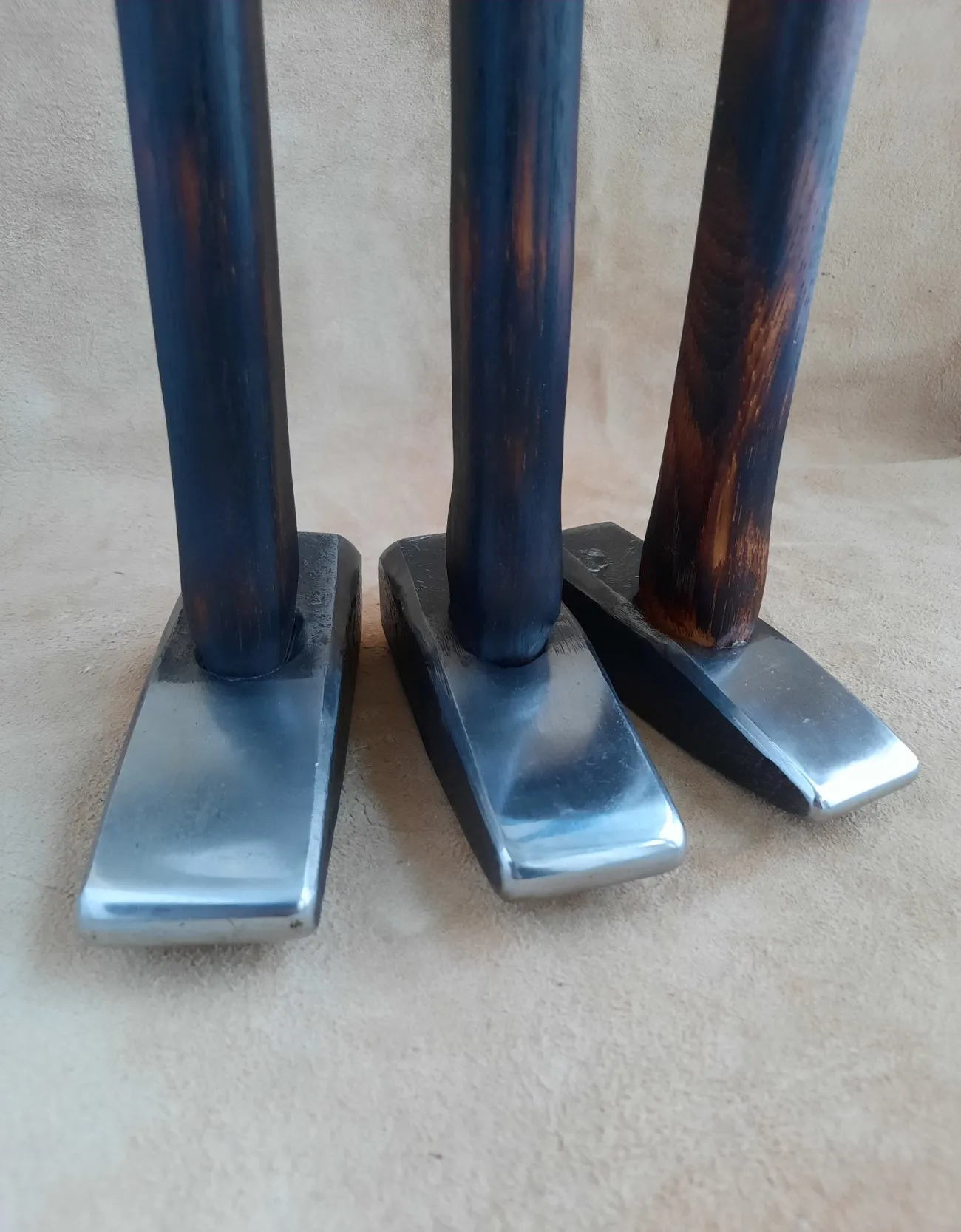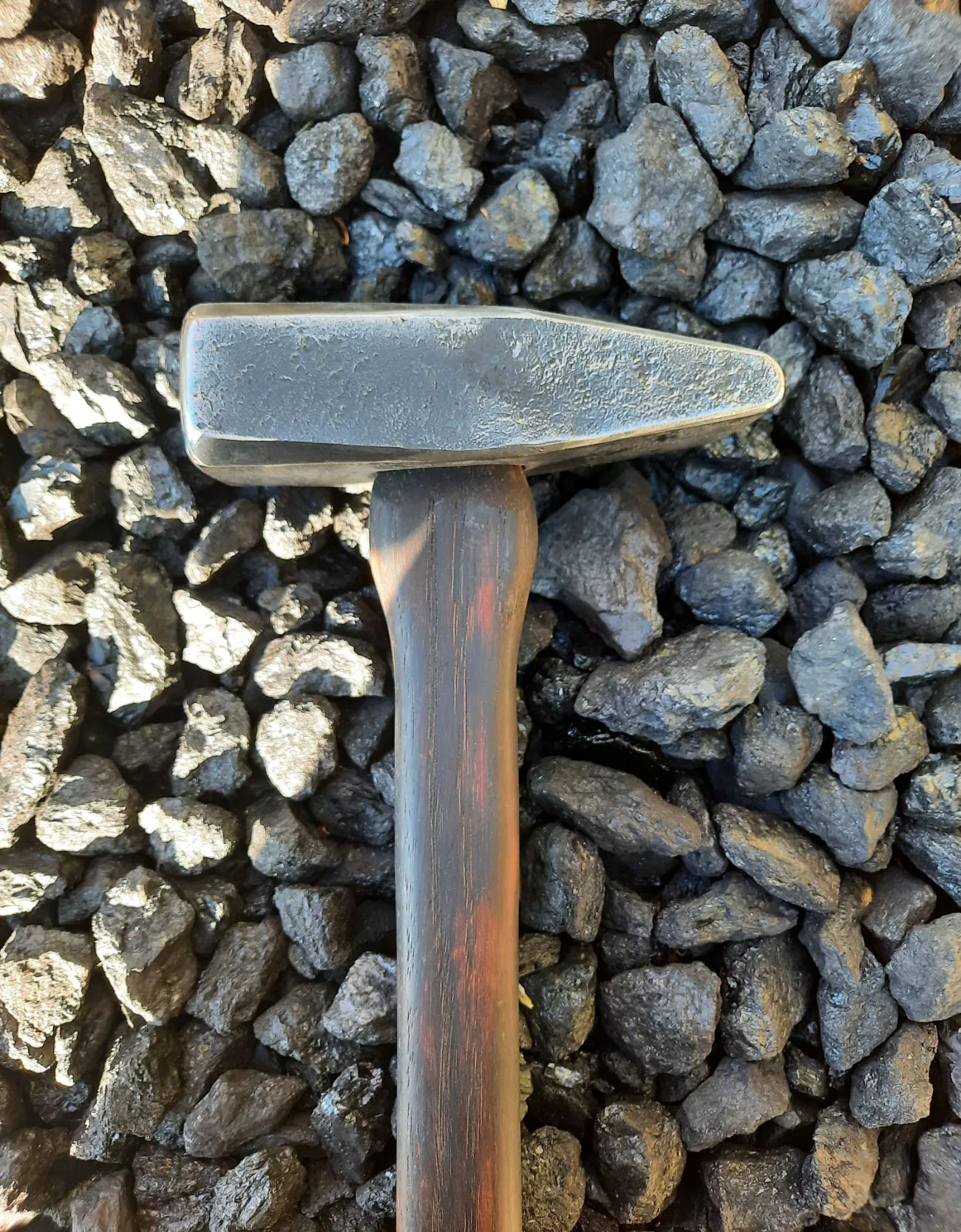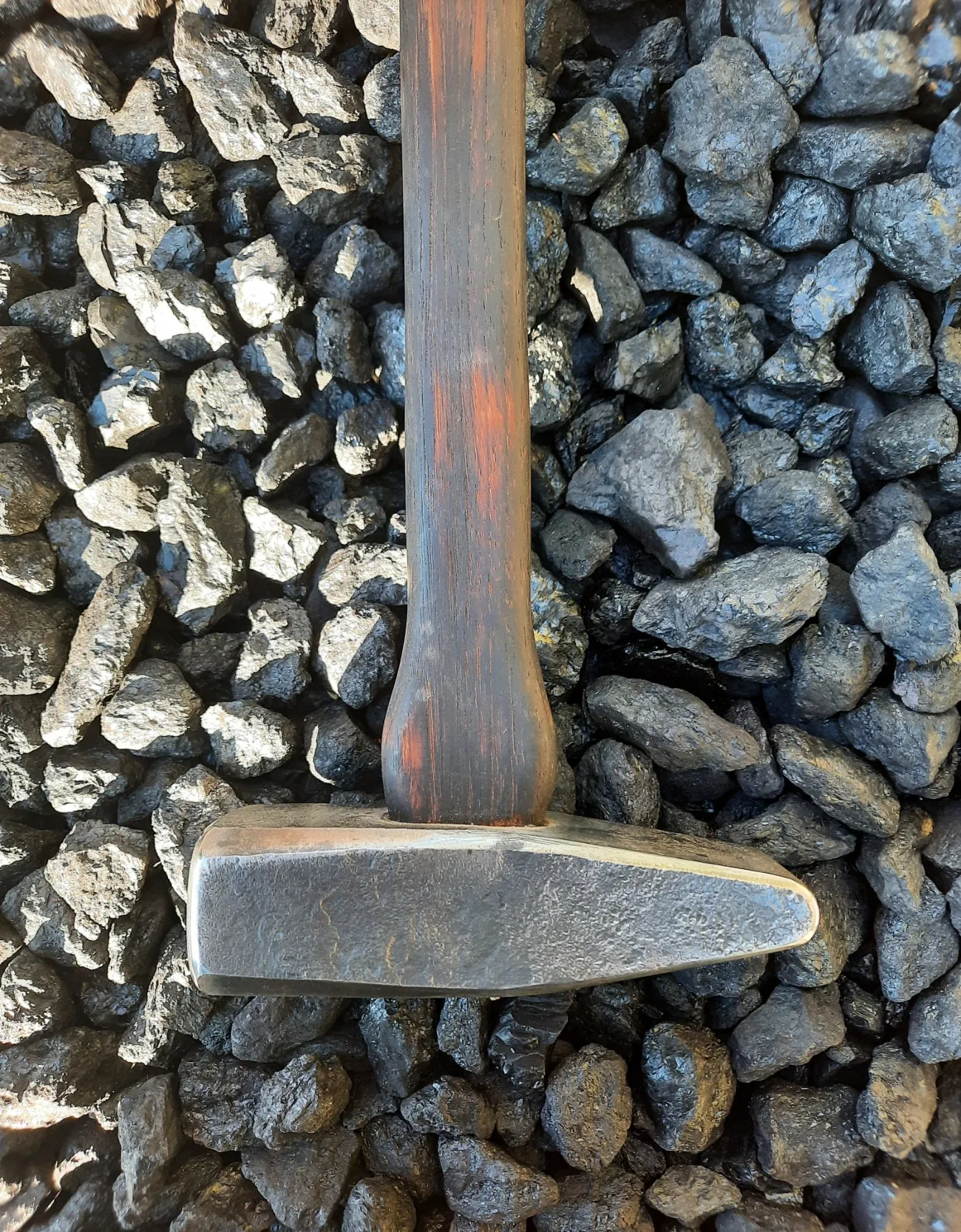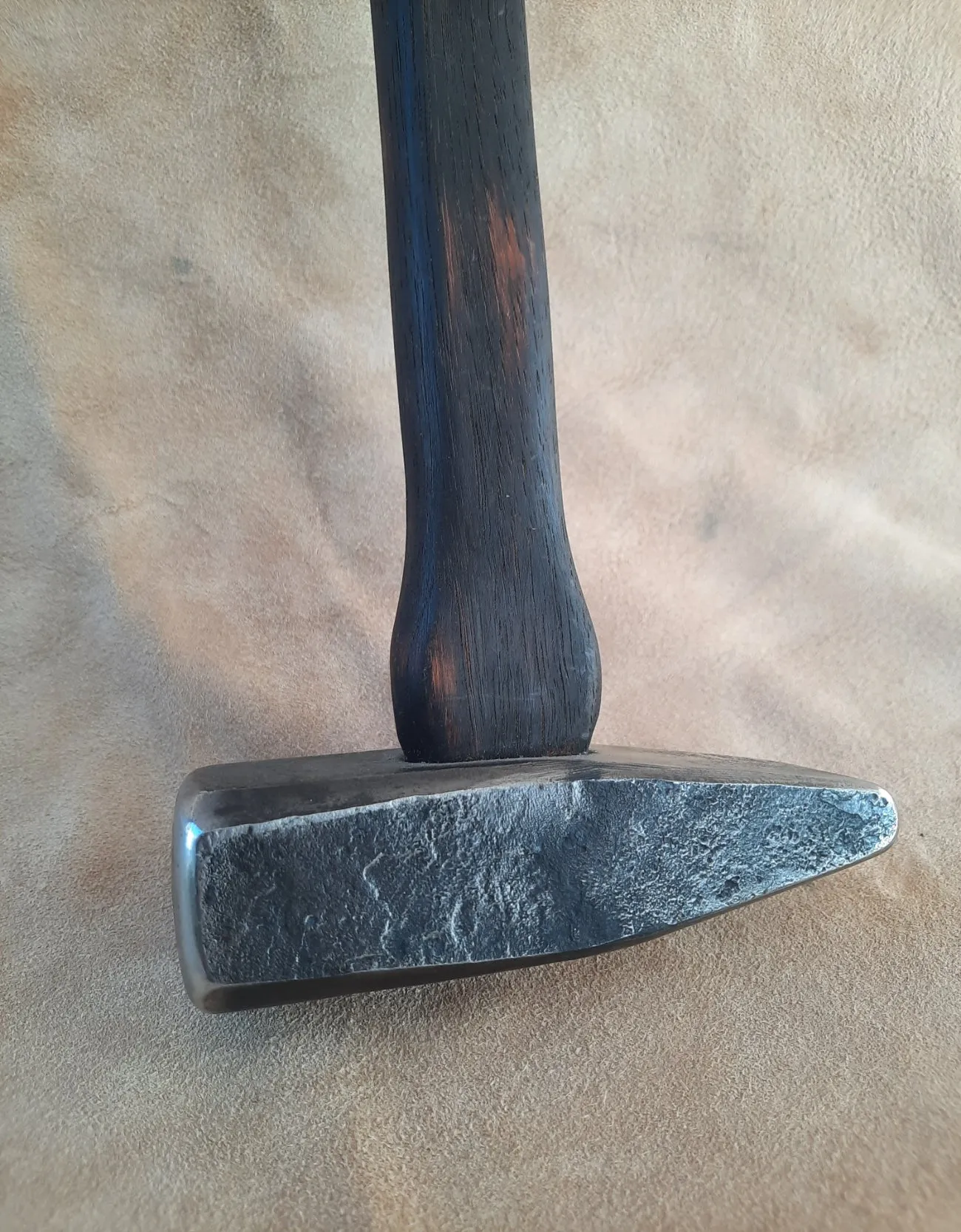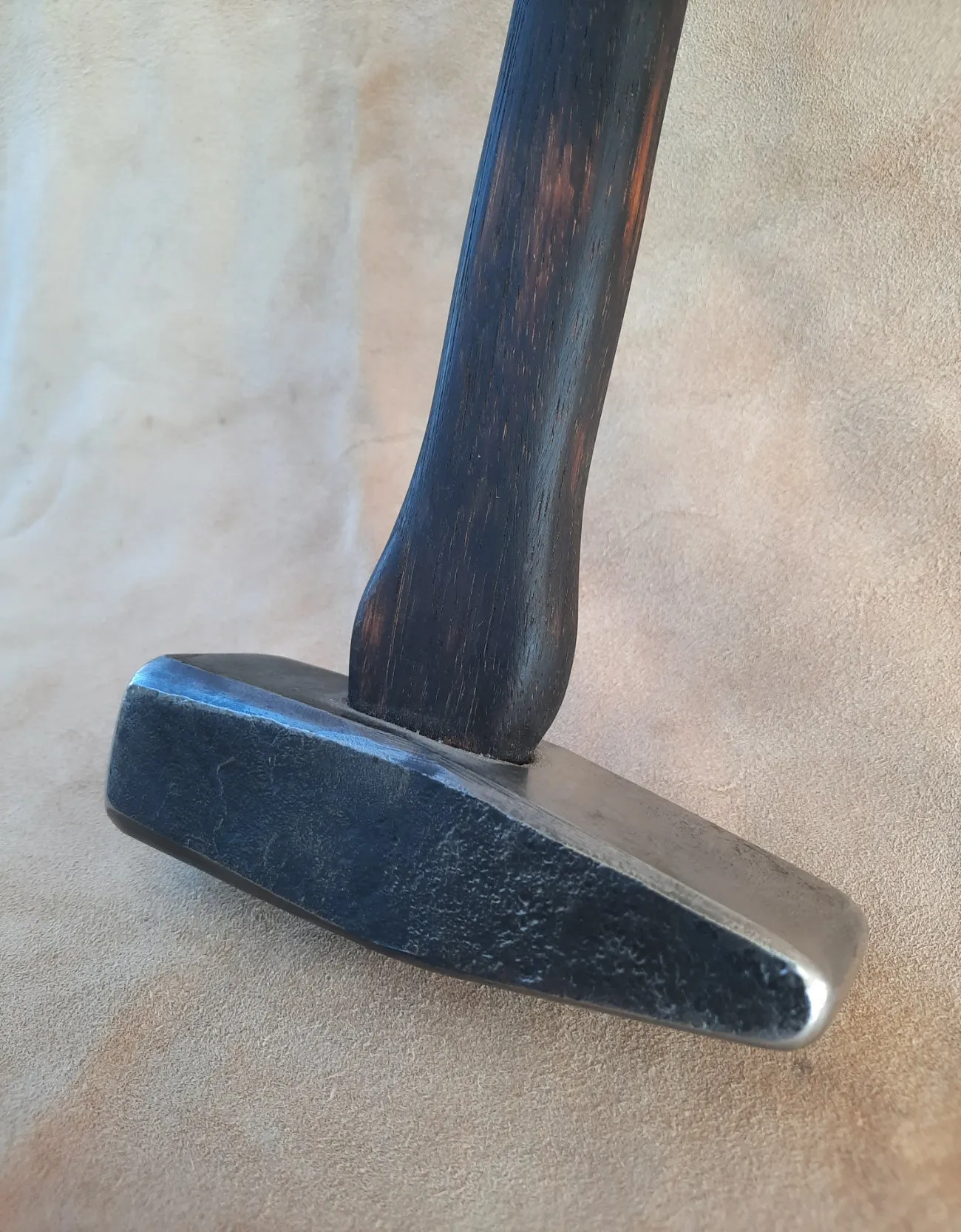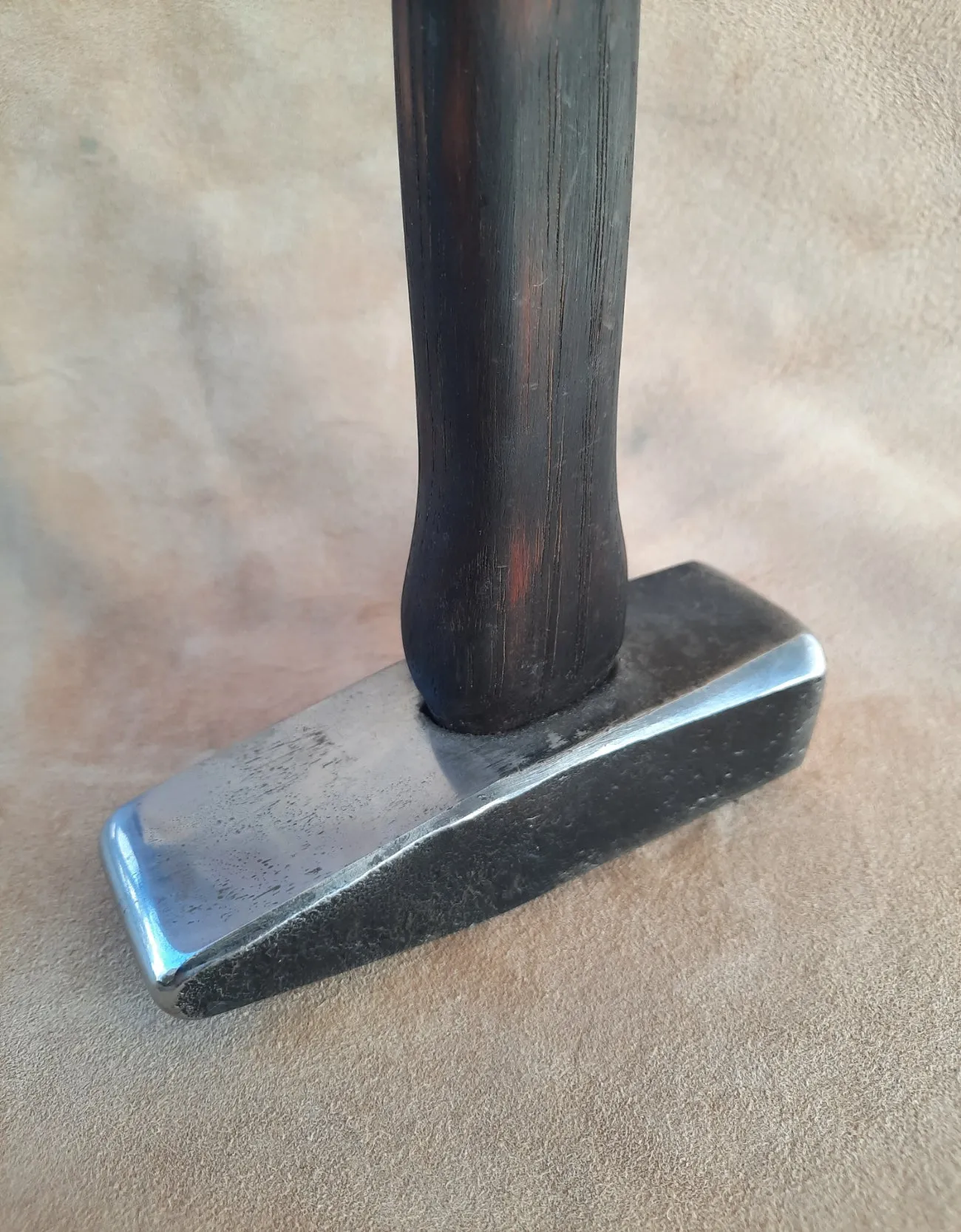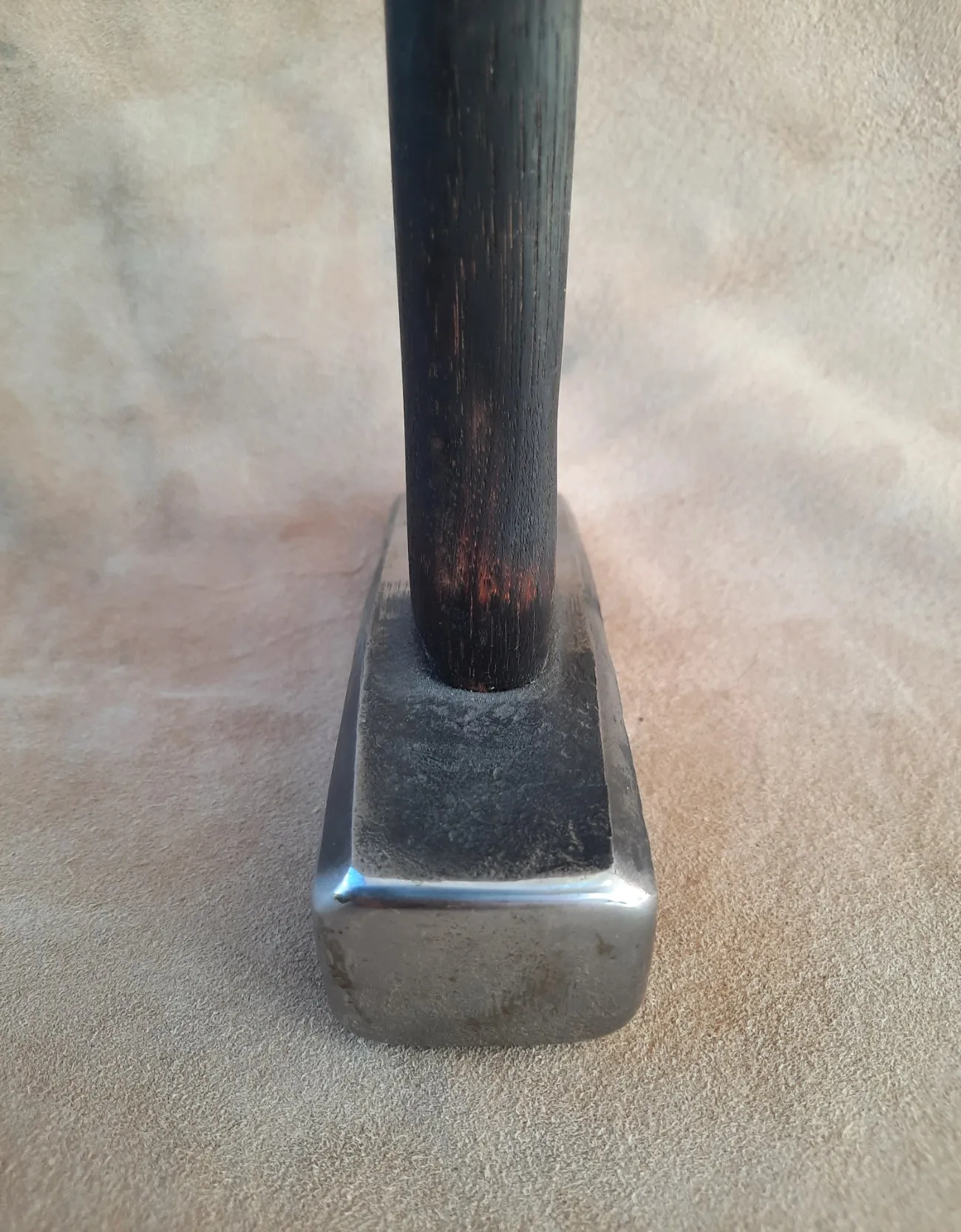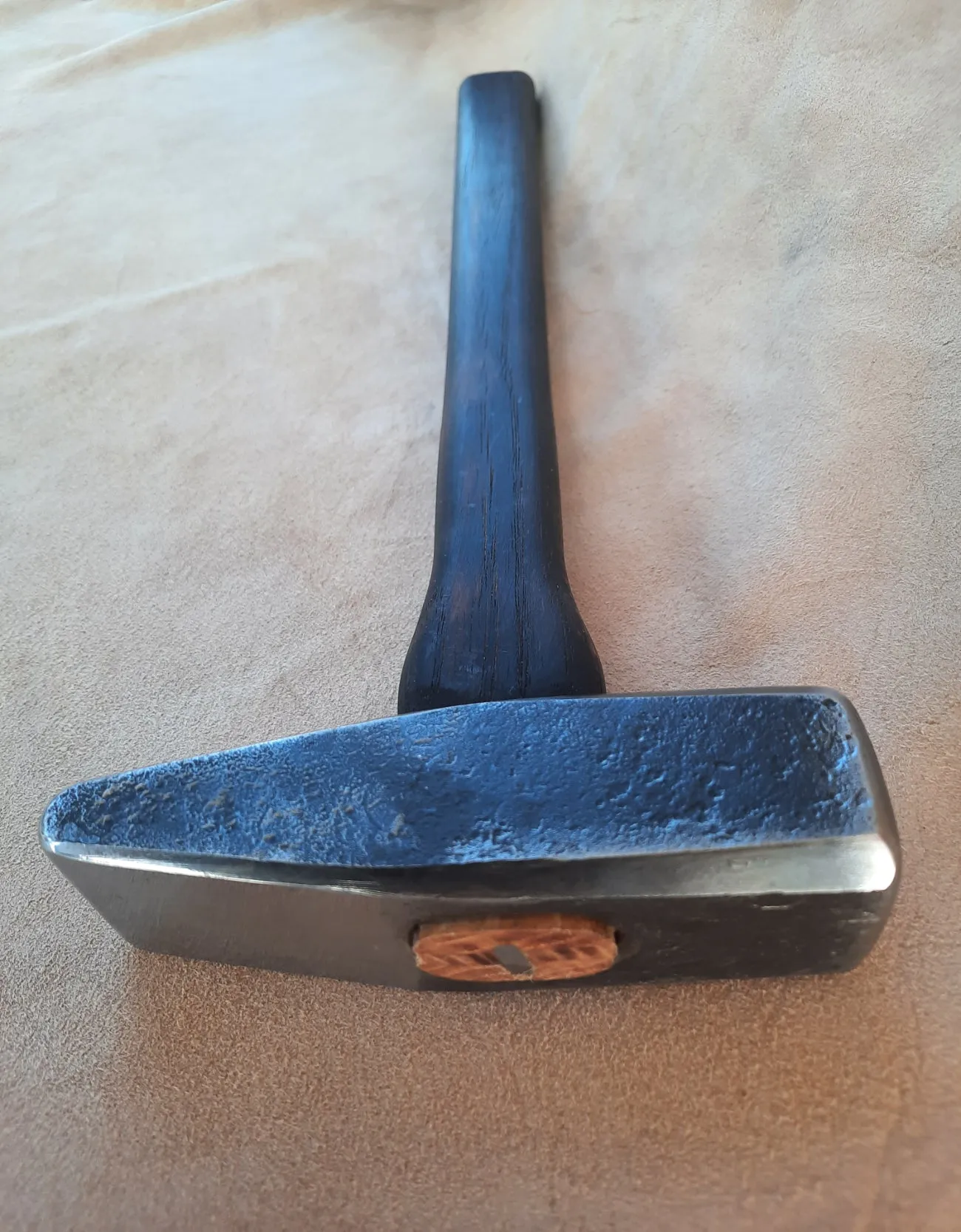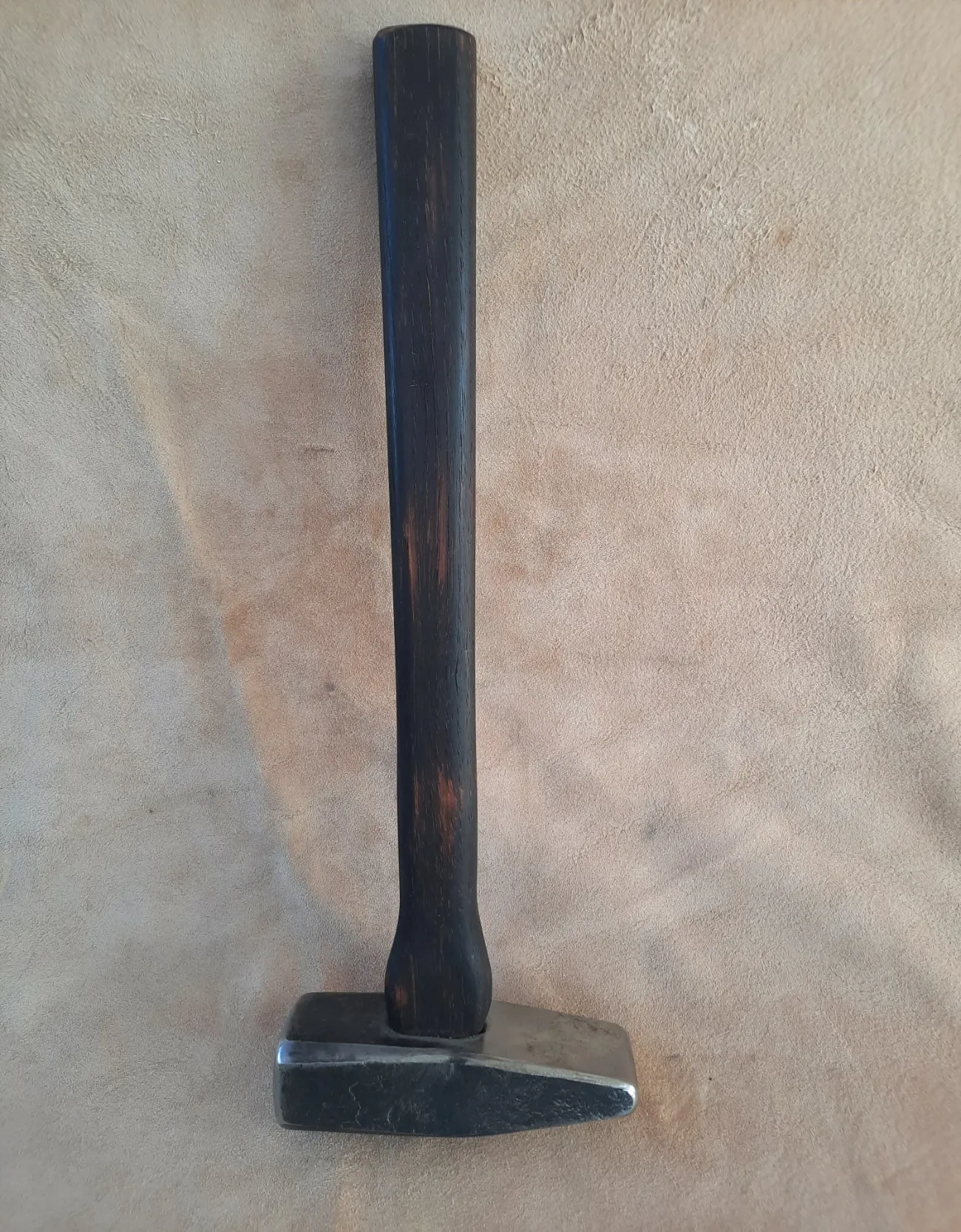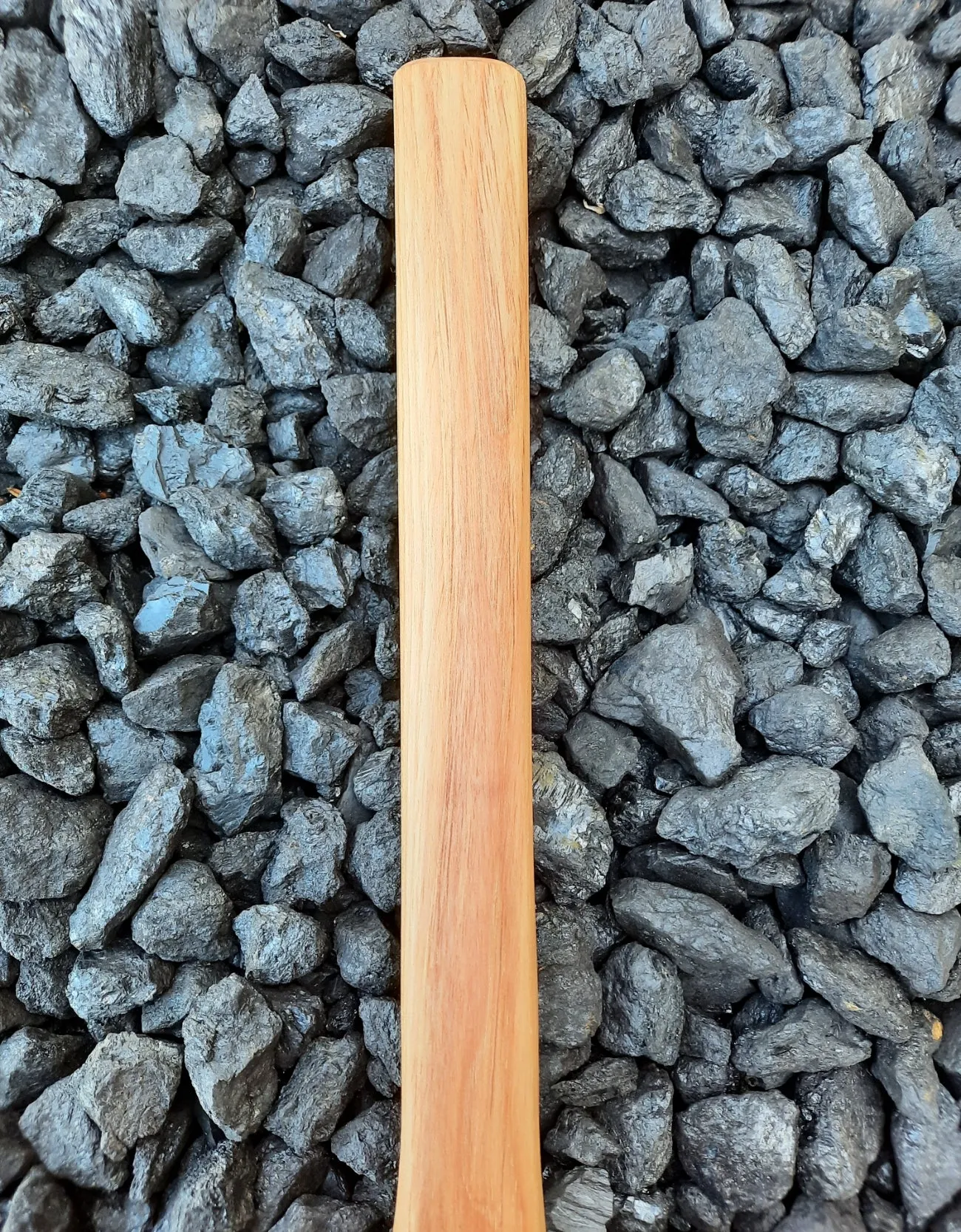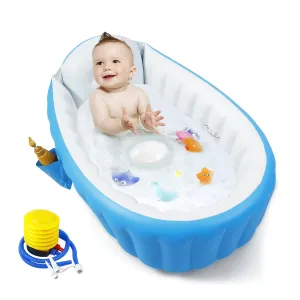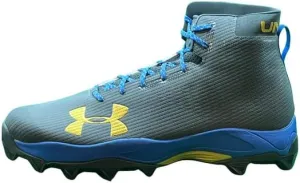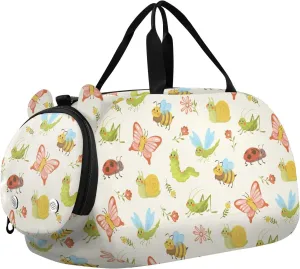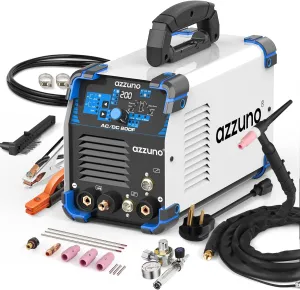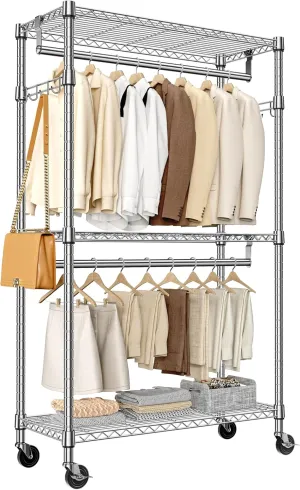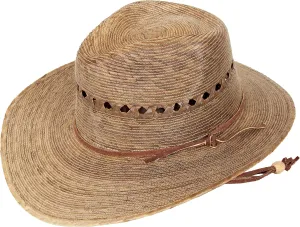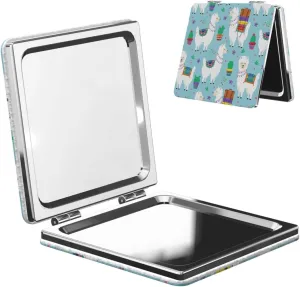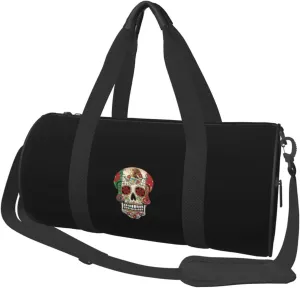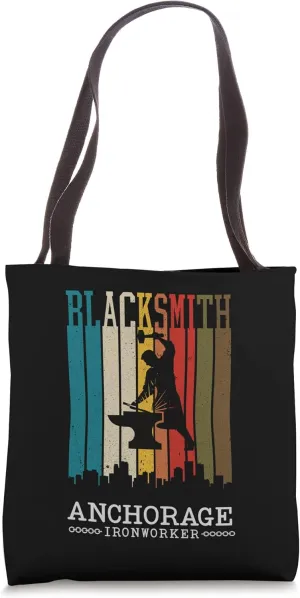Cross Peen Hammer
The cross peen (or pein) is one of the most common hammers used by blacksmiths and metalworkers. It is a general purpose hammer for use at the anvil or at the bench and is ideal for both beginner and experienced blacksmiths and blade smiths.
A cross peen hammer is recognised by its peen; the wedge end of the head angled horizontally relative to the handle. The wedged peen at a flat angle allows you to hammer in compact, small spaces that are too restricted and precise for the full, flat head of the hammer. This hammer will allow you to effectively true and square work, as well as draw it out efficiently.
Our hammer heads are forged from new 1045 medium carbon steel, water-quenched, and oven-tempered, for a consistent and long-lasting tool. These are crafted with the use of forges, a press, power hammer, and hand-forging. They are rough grinded and then heat treat and tempered so that they are tough without being brittle. They have a finish sand and polish to the striking surfaces.
We typically make hammer head weights in: 2 lb, 2.5 lb, 3 lb, 3.5 lb, 4 lb and 4.5 lb.
Please contact us for other head weights. Please allow up to a few weeks of crafting time for a custom hammer.
Our handles are made from hickory and are available in natural/oiled or charred/oiled finishes. The handle is held in by one wooden wedge and one steel wedge and glued on assembly and is shaped to fit the hand nicely.
Keep in mind that handles add some weight to the hammer. Handles are around 400-450mm long to allow shortening to the desired length.
Note: The hammer shown in the photos may be a representation of the one you'll receive. If you wish to see photos of the exact hammer you'll be purchasing, please let us know.
Hammer Weights
Blacksmithing hammers are usually divided into three groups for weight:
- Small size hammers - 1.1 to 2.2 lbs (0.5 to 1 kg)
- Medium size hammers - 2.2 to 4.4 lbs (1 to 2 kg)
- Large size hammers - greater than 4.4 lbs (greater than 2 kg)
Small size hammers offer higher precision and control, allowing you to work longer due to the lightweight. If you are doing small-scale items, small hammers are ideal and probably the only choice.
Medium size hammers allow you to work with larger pieces. They can also create shapes with broader areas of the surface. In some cases, small hammers are too small, and large ones are too large, so medium hammers are a choice in those cases.
Large size hammers are the choice when heavy striking is needed. They are recommended on items that require the construction of extremely wide planes and for punching the metal due to the high force they can produce.
While a heavier hammer is faster and more efficient, you shouldn’t use a hammer that is heavier than you can wield with control. While weight is a matter of personal preference, it is usually recommended that beginners start with a lighter hammer, because even a light hammer can start to feel very heavy after an hour of use.

